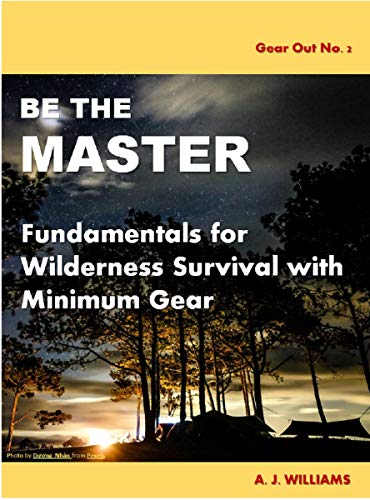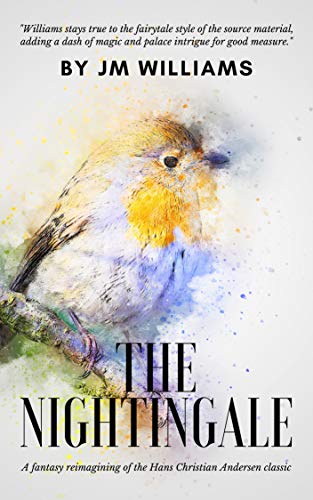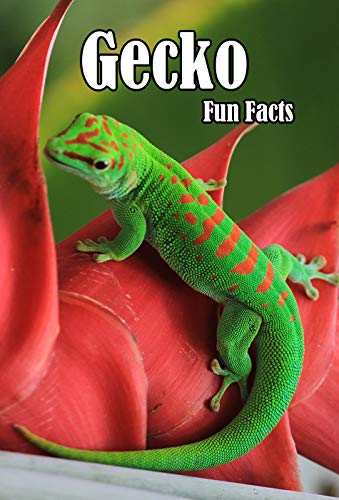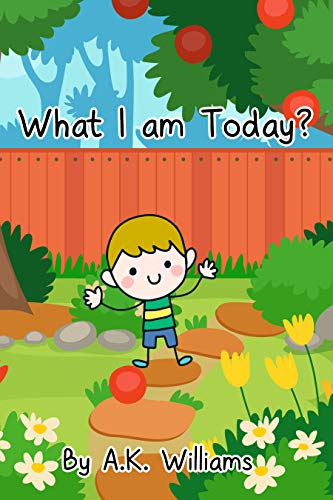-
Planes Go!
John Matthew Williams
Paperback (Gareth Stevens Pub, Jan. 15, 2018)Exploring the skies is easy when you have an airport nearby. This book takes an exciting look at the world of plane travel, taking young readers on an exhilarating journey through the air, from the inside of a plane. Whether a small private plane at a local airport or a massive jet taking hundreds of people from city to city, full-color photographs and accessible text explain the rules of the skies to early readers with ease. I
I
-
Rib Bone Jack: The Spareson Spies
John Williamson
Paperback (CreateSpace Independent Publishing Platform, Feb. 2, 2018)It’s 1802, and Jack finds himself surrounded by spoilt aristocrats in a mysterious training camp on the South coast of England. Once more he is drawn into an unexplained murder mystery, and with the dead man’s family baying for blood, someone is going to pay, regardless of their guilt or innocence. Could a mysterious French ship stalking the English coastline be in some way linked to the killing? Able to outrun anything the English navy puts against it, the need to catch this enigmatic vessel becomes vital to the war effort, its very survival highlighting England’s weaknesses. As the body count grows, the rules of both war and honour become secondary to the necessity to win at any price. As ever in the Major’s world, nothing is quite as it seems and everyone is expendable for the greater good. Jack is the ultimate underdog, with nothing to lose. A lowly peasant dragged into a dangerous world of spies and spy catchers, where the privilege of seeing a new day is a prize to be fought for.
-
BE THE MASTER, Fundamentals For Wilderness Survival with Minimum Gear
A. J Williams
language (, Nov. 7, 2019)If you are planning a wild camping trip, this eBook is your ultimate guide. It gives you an insight into the things that you need to carry with you, things you come across in the jungle, what are the dangers, and what precautionary tips you can take to stay safe. Furthermore, it also guides you on what you need to do, just in case you run short of gear. If you are unsure about going on a wild camping trip, some chapters signify the advantages of wild camping and how camping can prove beneficial to your health.Have a nice and joyful reading!
-
KING GOD DIDN'T SAVE. Reflections on the life and death of Martin Luther King, J
John A. Williams
Hardcover (Coward - McCann, March 15, 1970)None
-
The Nightingale: A Fantasy Novella
JM Williams
language (, May 1, 2020)King Gregor of Eriari is on the verge of his sixtieth year. The kingdom is tense, awaiting the selection of his heir from among the three royal siblings. Kari understands the feeling all too well. She has only recently learned that she will not inherit her family’s smithy, despite her skill being far superior to that of her younger brother. Everything is a mess and nothing seems fair. Princesses can inherit the kingdom, but village girls can’t even take over a forge. Kari wonders if she will ever find a place for herself. That is, until she stumbles upon something in the royal forest that changes everything…A fantasy reimagining of the Hans Christian Andersen classic, The Nightingale is an epic tale of magic and intrigue, courageous heroes and cunning villains. Fast-paced and filled with colorful characters, this is one you won’t want to put down.From readers of the First Edition:“Williams stays true to the fairytale style of the source material, adding a dash of magic and palace intrigue for good measure. This could be a great book for young readers though it's also enjoyable for adults.”“The characters are warm and relatable, and the action is believable. If you like a slash-em-up, this isn't for you. If you like real people working to make their world better, give it a try.”“This reimagination is awesome, and its fast pace keeps you hooked to the end.”“This retelling of the fairy tale 'The Nightingale' is filled with deception, intrigue and a cool cast of characters.”
-
Black Whiskers the River Pirate: The search for the fisherman's gold
John Williamson
language (, Dec. 2, 2016)A brand new, must read for all pirate fans. When the otter pirate, Black Whiskers sets sail for early retirement, he plans one last great adventure, to find the fisherman's gold. With his old enemy, Captain Silk in the race and the mysterious secret order determined not to let it go, the fur is sure to fly in this action packed twist on the old pirate stories that we all love so much.
-
Cats Krazy Facts for Krazy Kids: Photobook of Cats With fun Facts about Cats for Kids and Toddlers to have knowledge.
A.K. Williams
eBook (, April 6, 2019)Benefits for being Cats Owner.Diminishes pressure and uneasiness: Owning a cat or feline can be relieving and trigger quieting synthetic compounds in the body, diminishing pressure and nervousness levels. Cats or Felines are known for being low-upkeep, so a straightforward petting session is regularly enough to loosen up proprietors and occupy them from different stresses. Diminishes danger of stroke: Studies demonstrate that cat or feline proprietors are more averse to be in danger of having a stroke than some other pet proprietor. Researchers guess this is likewise a result of a feline's low-upkeep proprietorship. Restorative advantages: The quieting impact of owning cat or feline triggers the arrival of oxytocin, the hormone known for initiating sentiments of affection and trust. Individuals experiencing troublesome occasions of misery or grieving report that conversing with their pet helps work out their emotions, since usually simpler to converse with something that won't react and can't make a decision than to another person. What's more, an examination found that kids with chemical imbalance were bound to be less restless and quiet while petting a feline. Lifts insusceptibility: Exposure to pet dander and hide in the house results in expanded protection from allergens, diminishing danger for sensitivities and asthma. Brings down pulse: Cat proprietors are known to have lower circulatory strain than non-feline proprietors because of the quieting nearness felines give. One examination was directed with a room loaded with cat or feline proprietors. In the examination, the proprietors would talk so anyone might hear, which normally raised circulatory strain levels, yet when the proprietors were watched talking with their felines, their pulse stayed steady. Diminishes danger of coronary illness and heart assaults: An examination led by the University of Minnesota's Stroke Institute in Minneapolis have demonstrated that the individuals who don't possess felines are 30-40% bound to bite the dust of heart assaults than their feline owning partners. Brings down triglycerides and cholesterol levels: High triglyceride and cholesterol levels add to coronary illness and are symptomatic of sort 2 diabetes just as strokes, liver and kidney malady. Normally, decreases in these dimensions lead to a diminished hazard in these sicknesses. Increment amiability: Cat possession gives a characteristic friendly exchange and can improve the proprietor's capacity to mingle. One investigation uncovered that ladies were more pulled in to men who possessed felines since feline proprietorship regularly proposes affectability and knowledge.
-
Gecko Fun Fact: Photobook with real images of Variety Gecko around the World for Kids Enjoying
A.K. Williams
language (, April 5, 2019)Geckos are reptiles having a place with the infraorder Gekkota, found in warm atmospheres all through the world. They run from 1.6 to 60 cm (0.64 to 24 inches). Most geckos can't flicker, however, they regularly lick their eyes to keep them perfect and clammy. They include a fixed focal point inside every iris that amplifies in obscurity to let in increasingly light. Carp's woofing gecko licking its cornea to clear it of residue Geckos are one of a kind among reptiles in their vocalizations, which contrast from species to species. They use twittering or clicking sounds in their social associations, and in some cases when frightened. They are the most species-rich gathering of reptiles, with around 1,500 unique species around the world. The New Latin Gekko and English "gecko" originate from the Indonesian-Malay gēkoq, which is imitative of sounds that a few animal varieties make. All geckos aside from species in the family Eublepharidae need eyelids; rather, the external surface of the eyeball has a straightforward film, the cornea. Species without eyelids, by and large, lick their very own corneas when they have to clear them of residue and soil. Nighttime species have great night vision; their shading vision in low light is multiple times more touchy than human shading vision. The nighttime geckos advanced from diurnal species which had lost the eye poles. The gecko eye, consequently, adjusted its cones that expanded in size into various kinds both single and twofold. Three distinct photopigments have been held and are delicate to UV, blue, and green. They additionally utilize a multifocal optical framework that enables them to create a sharp picture for something like two unique profundities. Most gecko species can lose their tails in resistance, a procedure called autotomy. Numerous species are notable for the specific toe cushions that empower them to climb smooth and vertical surfaces and even cross indoor roofs easily. Geckos are notable to individuals who live in warm locales of the world, where a few types of geckos make their home inside human residences. These (for instance the house gecko) become some portion of the indoor zoological display and are regularly invited, as they feed on bugs, including moths and mosquitoes. In contrast to most reptiles, geckos are generally nighttime.
-
SISSIE
John A. Williams
(Doublday, Anchor Books, Jan. 1, 1969)African American Fiction
-
What I am Today?: Bed Time Story For Kids toddler Children age 2-6 Yrs to create imagination to their minds.
A.K. Williams
language (, April 22, 2019)THE BENEFITS OF STORYTELLING (Bed Times Story) Idealizing sleep time will mean a higher nature of rest for both you and your children, however, another essential part is narrating. While you may think perusing sleep time stories just enables your little one snooze to off to the sound of your voice, there is a huge number of different advantages, including: Advancement of creative energy – perusing anecdotal stories to youngsters urges them to utilize their creative energy and picture the scene in their mind The more profound comprehension of the world – narrating is fun and energizing yet, in addition, empowers anybody to encounter distinctive societies and customs. Kids adapt new data about the world without acknowledging, and accordingly, create more prominent compassion Parent-youngster holding – perusing to your tyke is quality time for both you and them, encouraging a positive relationship Correspondence and social abilities – perusing sleep time stories enable kids' relational abilities to develop monstrously. They make inquiries about the story, while likewise adapting new vocabulary and expanding their core interest. Socially, youngsters figure out how to tune in to others through narrating and start to comprehend that not every person translates things a similar way Bound to peruse for joy – perusing to youngsters when they're youthful methods they're bound to keep perusing for joy as they develop. This will empower them to gain autonomously from books
-
You Can Think About: Rhyming Book For Kids and Family as Bed Time Story for beautiful poem
A.K. Williams
language (, April 11, 2019)Improves Memory and Cognitive Development Nursery rhymes are on a very basic level examples which can enable kids to improve their review and remembrance abilities. Moreover, most rhymes are stories with a starting, center, and end. This structure can enable youngsters to get circumstances and logical results and sharpen their successive thinking. Strikingly, the subjective advancement advantages of rhymes even reach out to embryos. An examination from the University of Florida requested that pregnant ladies recount a nursery rhyme to their infants three times each day for about a month and a half toward the start of their third trimester (28 weeks). The analysts at that point tried fetal acknowledgment of a similar rhyme spoken by an outsider at 34 weeks. By checking the babies' pulse, the analysts found that the hatchlings perceived the rhyme, proposing the intensity of rhyme to encourage memory and thinking. Rhyming Develops Literacy Analysts initially found the connection among's rhyming and perusing during the 1980s. From that point forward, think about after examination has recommended that great rhymers end up being great perusers. Nursery rhyme books are usually a youngster's first involvement with education, presenting them to phonetics and word constituents. For example, kids who discuss the expression "feline in the cap on a tangle" can recognize that "at" is the word fragment or shared factor. Understanding constituents along these lines enable youngsters to separate new words into little words, an ability called phonemic mindfulness. Kids who do this well are probably going to encounter perusing accomplishment not far off. Advances in Language Development Rhymes advance language learning in a few different ways. For one, youngsters hear how vowels and consonants sound when they tune in to nursery rhymes. Rhymes exhibit how to join these sounds to shape words. Rhymes likewise show fitting pitch, voice articulation, rhythm, volume, and beat. Besides, nursery rhymes frequently open kids to unprecedented words, in this way extending their vocabularies. For instance, There Was an Old Woman Who Lived in a Shoe incorporates words like "whipped," "soundly," and "stock." Often, kids carry on nursery rhymes, which causes them to put these new words in a setting. Empowers Social and Emotional Development Presenting nursery rhymes is a magnificent holding movement, regardless of whether for a gathering of kids or for guardians and kids. Remembering and recounting nursery rhymes energizes self-articulation and manufactures certainty since rhymes are so natural to learn. Further, numerous nursery rhymes contain humor and different feelings, helping kids build up these capacities with respect to themselves. In Short Nursery rhymes may appear to be a senseless, inefficient hobby, yet volumes of experimental proof recommend that they are really important educational apparatuses for little kids. Rhymes help build up the memory, language abilities, and perusing aptitudes such that slips in under children's radars in light of the fact that, to the exclusion of everything else, rhymes are out and out fun. On the off chance that you might want to find out about how you can encourage your youngster's initial instruction experience, demand a free data unit from K12.
-
Sissie
John A. Williams
Textbook Binding (Chatham Bookseller, Jan. 1, 1975)None